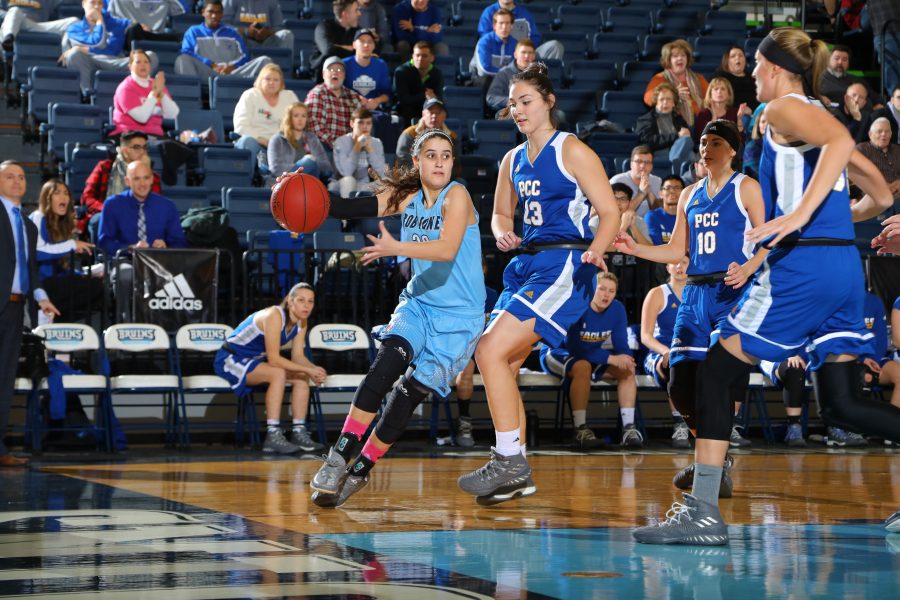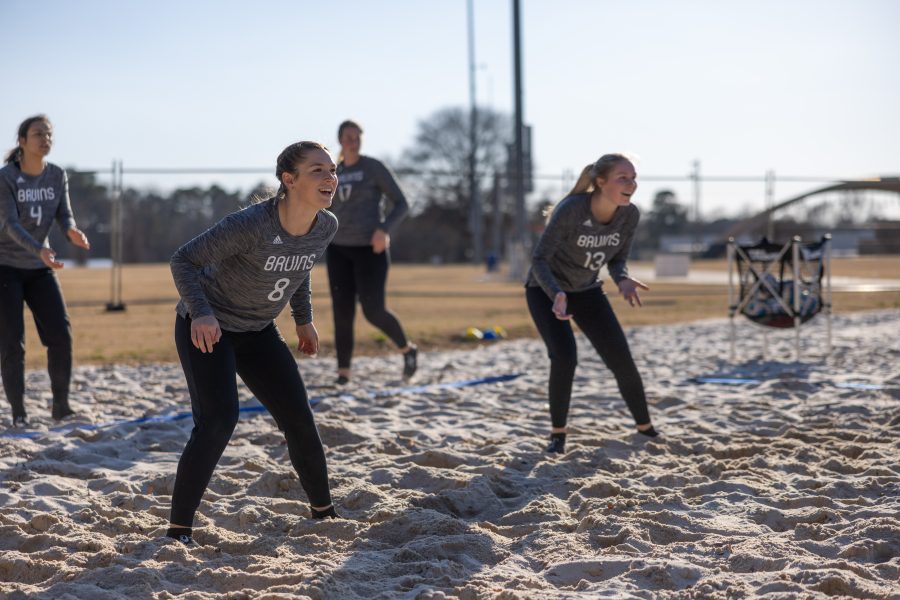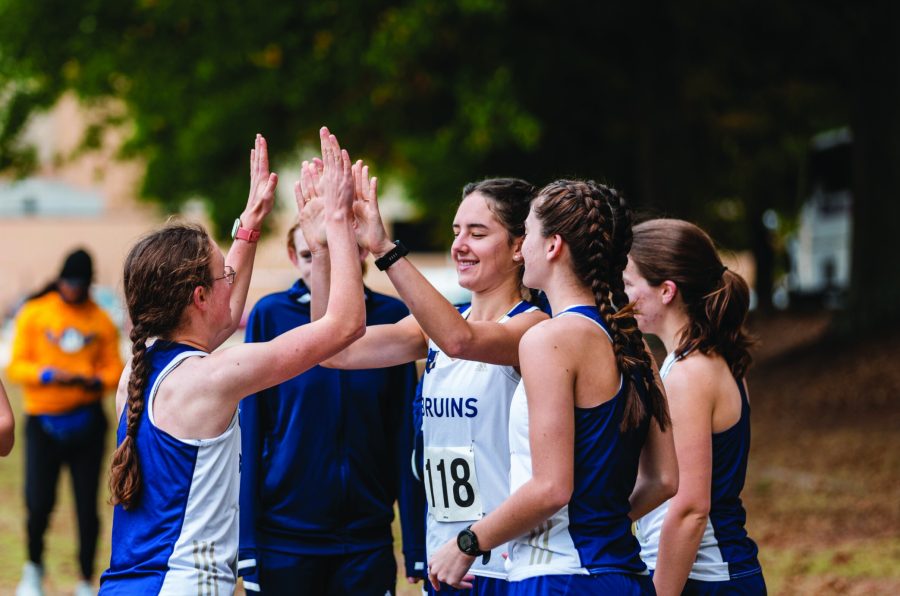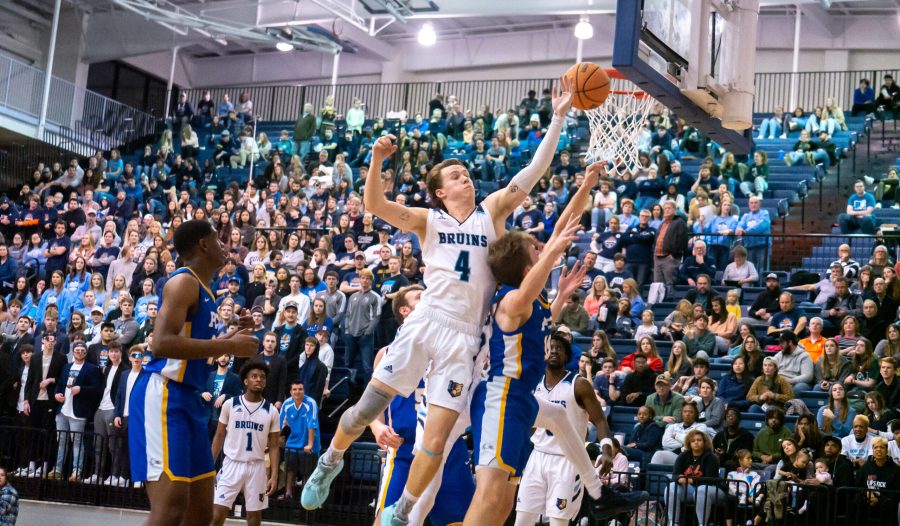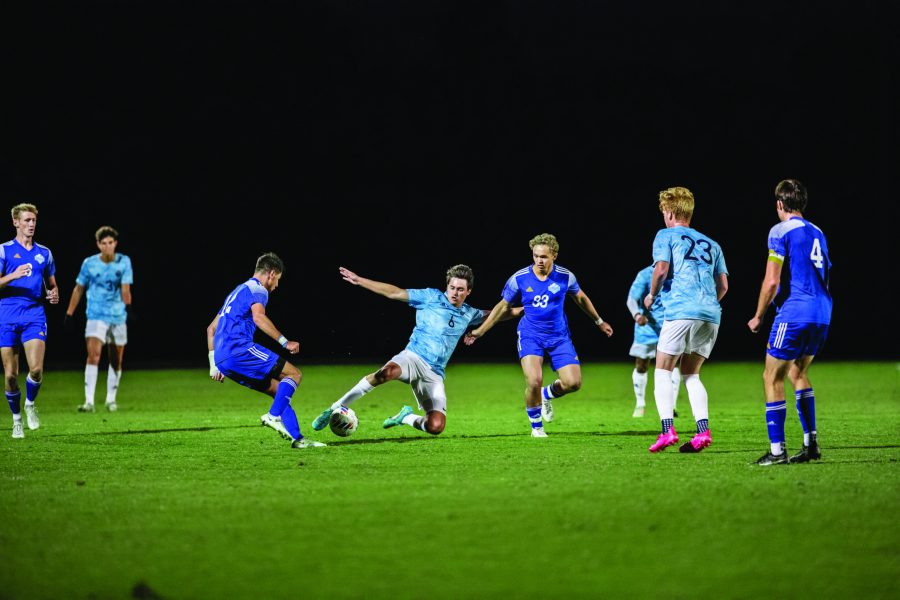Many colleges have a major athletic rivalry with one specific school. For instance, Clemson University and the University of South Carolina have competed for years.
For Bob Jones University, Pensacola Christian College is the rival to beat.
“Every sports program has ‘that team’ that everyone circles on the schedule. That’s PCC for us!” Athletic Director Neal Ring said. “We are rivals, but ultimately both schools are competing to bring God glory. It’s an opportunity for us to partner together in competition for the glory of God.”
The athletic rivalry between BJU and PCC began six years ago when BJU first announced the launching of an intercollegiate program.
In the beginning, the rivalry was contained to men’s and women’s basketball, but in the fall of 2017, men’s soccer and women’s volleyball began playing PCC.
PCC began its intercollegiate program in 1977, while BJU began its intercollegiate program in 2011.
Despite PCC having intercollegiate athletics 34 years prior to BJU, the Bruins quickly became a tough opponent.
“I think we really closed the gap in the sports where we’re really as competitive as they are,” the Bruins men’s basketball coach, Burton Uwarow, said.
BJU and PCC play competitively, as they would in any other competition. That natural competitiveness leads to the athletic rivalry seen today.
No matter the reason for the rivalry, the rivalry does affect the fans, the teams, and the athletic programs.
Because of the rivalry between the schools, more fans attend the BJU vs PCC games than any other games, including those who would not normally attend a Bruins event.
Junior Katie Albert said, “I personally feel more of a pull to watch a game against PCC than any other, because I love the energy of the stands and the way the players play.”
According to Assistant Athletic Director Wyatt Parker, the Davis Field House staff prepares for a full house when PCC comes to Greenville to play BJU during basketball and volleyball seasons.
Parker also said, “We have to be careful that we cheer for our teams, and that we don’t make it an attack against the opposing school.”
A rivalry can only be healthy if the players and fans respect each other and work hard to cheer for their own team.
Mike LeViere, the Bruins women’s basketball coach, said, “I always say I want the fans to cheer obnoxiously loud for us and not against the other team.”
The increased number of fans at these games also affects the teams that are playing.
Last year, basketball games averaged around 1,000 people per game. Games between BJU and PCC, however, averaged over 3,000 fans.“
Having more fans here for sure affects our [energy] as a team and gets us more excited and pumped up for the game,” junior basketball player Sarah Thomsen said.
Thomsen also said the number of fans encourages the team and helps build their confidence.
The BJU and PCC rivalry affects the athletic programs overall as well.
Senior basketball player Cooper George said, “The more people that come out, the more awareness there is for the program. As a result, if they like what they see, they might end up becoming a member of the Bruins foundation.”
Men’s soccer coach Jesse McCormick said, “Good competition always helps the programs.”
The more excited BJU fans are about a game, the more awareness is built for the Bruins teams in general.
These games really inject a passion into the students to come out and support their friends.





















































